
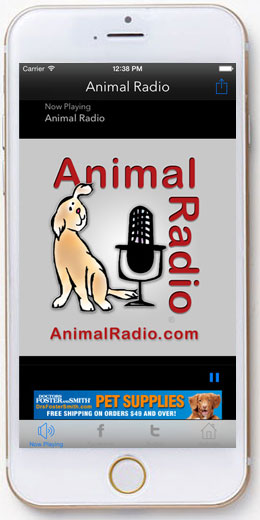 So many ways to listen to Animal Radio®. We're on 108 AM/FM stations, XM Satellite Radio, Animal Radio® App for iPhone/Android, iHeart Radio, iTunes, Stitcher, Live365, TuneIn, Spreaker and Podcast. We're available wherever you are!
So many ways to listen to Animal Radio®. We're on 108 AM/FM stations, XM Satellite Radio, Animal Radio® App for iPhone/Android, iHeart Radio, iTunes, Stitcher, Live365, TuneIn, Spreaker and Podcast. We're available wherever you are!
We welcome WSCW 1410 Charleston, WV as our 108th Animal Radio® affiliate! Listen Saturdays at 10am.
Animal Radio® Show #722
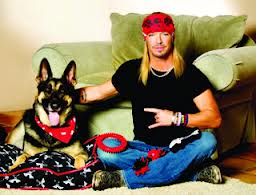 10 Pets That Inspired Great Songs
10 Pets That Inspired Great Songs
From the Rolling Stones to Queen to Norah Jones, they all wrote or sang songs about the important animals in their lives. MNN.com's Laura Moss has the stories behind the music.
Fatal Canine Disease Spreads from Ohio
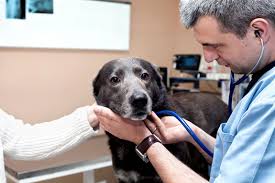 Veterinarians across the country are stumped about a new disease, similar to Parvo, that seems to have originated from a service dog in Ohio. So far 10 cases of Circovirus have been reported. Animal Radio® Veterinary Correspondent Dr. Marty Becker reports on the latest findings and how to prevent exposure.
Veterinarians across the country are stumped about a new disease, similar to Parvo, that seems to have originated from a service dog in Ohio. So far 10 cases of Circovirus have been reported. Animal Radio® Veterinary Correspondent Dr. Marty Becker reports on the latest findings and how to prevent exposure.
Are Monkeys Smarter Than College Students?
 Britt Savage reports about a study that shows our primate friends may be sharper than college student. Researchers tested Duke University students and monkeys. Guess who scored higher on the exams? Let's just say the results didn't boost morale at Duke.
Britt Savage reports about a study that shows our primate friends may be sharper than college student. Researchers tested Duke University students and monkeys. Guess who scored higher on the exams? Let's just say the results didn't boost morale at Duke.
Blind Man Washed Into Culvert, Dog Jumps In After Him
A blind man was walking his dog along a Denver street, when epic flood-waters surged and knocked him over. Ronnie Webb was washed into a deep culvert, as his guide dog frantically paced the edge. As Webb called for help, his dog jumped in after him.
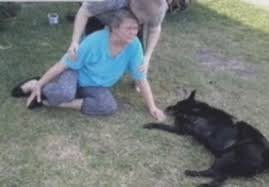 Dogs Shoots Owner
Dogs Shoots Owner
Dogs are supposed to be man's best friend, but one pooch in Fort Worth, Texas is being blamed for shooting its owner. The accident occurred when a 78-year old woman was watching television. Apparently, her dog walked by a shotgun that was at her side, knocking it over. When it hit the floor, the gun discharged and struck the woman in her left foot.
Listen to this Animal Radio® episode
Animal Radio® Show #721
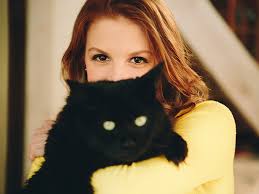 Get Your Licks on Route 66
Get Your Licks on Route 66
We're checking in with Susan Sims and actress Ashely Bell as they trek across America on the annual adoption tour. Ashley shares the stories behind her pets at home.
My Dog Eats Drywall
We hear it all at Animal Radio®. This week we'll be helping a listener's dog to stop eating the sheet rock walls. And we'll uncover the reasons our dogs have chewing fetishes and give you solutions to stop this kind of bizarre behavior.
![]() Dare to Look
Dare to Look
Ripley's Believe It Or Not is back and Edward Meyer shares the most unusual and unique animal oddities. From the skateboarding cats to the man who married a donkey, you'll hear the strange but true stories.
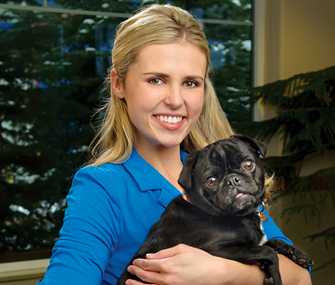 Can You Train a Cat?
Can You Train a Cat?
Mikkel Becker may be the daughter of Dr. Marty Becker but she stands on her own. Especially when it comes to Positive Reinforcement. Mikkel utilizes this technique to train dogs AND cats. She'll share ways we can use Positive Reinforcement with our pets and husbands.
For $349 Your Dog Can Learn To Fly
Security checks and bumpy air are all in a day's training at a Hollywood film studio to prepare your dog for a safe and calm flight. The Air Hollywood class is billed as the first in a real fuselage on a sound stage with a simulator that mimics takeoff, turbulence and landing.
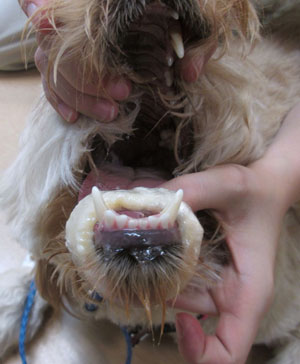
Bone Trick
How did this dog get one of those bones stuck on it's lower jaw? Animal Radio's Dr. Debbie had the pleasure of removing it. She'll explain what happened. Let this serve as a lesson about the safety of bones.
Bogus Service Certificates & Vests
A service dog is highly trained to perform a specific task for its disabled owner. For people wanting to take their pets wherever they go, a brisk business has developed in the sale of bogus service animal certificates and vests.
Listen to this Animal Radio® episode
Animal Radio® Show #720
 Is Yawning Contagious
Is Yawning Contagious
Richard Christian reports on a study that says you can get your dog to yawn by yawning yourself. But Fido knows when you're faking it. He won't fall for the faux yawn. What does it all mean? What is our dog thinking when they yawn? Don't get paranoid. He's not necessarily bored.
Man Tries To Smuggle Fish In Pants
An embarrassing leak foiled one man's recent smuggling attempt in New Zealand. The Vietnamese national tried to go from Australia to Auckland with live tropical fish hidden in plastic bags and stuffed in his pockets. But airport officials grew suspicious when they noticed there was water seeping from his pants.

Cat Friendly Practices
Animal Radio® Veterinary Correspondent Dr. Marty Becker reports on veterinary practices that go out of their way to be extra cat-friendly. He'll also have tips for taking your cat to the vet without all the stress and strain.
Rent-A-Chicken
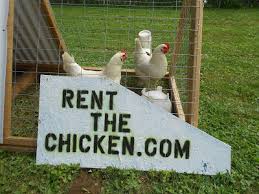 A couple in Freeport, Pennsylvania is giving aspiring chicken farmers a chance to take a test run with the animals. Phil Thompkins and his wife Jenn have recently started a business called "Rent The Chicken," which allows people to care for chickens. For $350, a renter gets two hens, a wheeled coop, feed and a water dish.
A couple in Freeport, Pennsylvania is giving aspiring chicken farmers a chance to take a test run with the animals. Phil Thompkins and his wife Jenn have recently started a business called "Rent The Chicken," which allows people to care for chickens. For $350, a renter gets two hens, a wheeled coop, feed and a water dish.
Missing Diamonds Found But Can't Be Retrieved For 8 Years
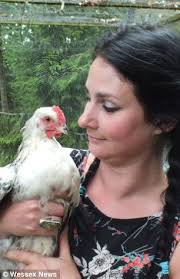 Claire Lennon says her pet chicken Sarah snatched the $450 piece of jewelry while she was perched on her shoulder. Veterinarians determined the earring was trapped in the chicken's stomach. And while they said they could remove it with a risky surgery, Lennon quickly ruled that out and intend to wait until Sarah grows old and passes away from natural causes.
Claire Lennon says her pet chicken Sarah snatched the $450 piece of jewelry while she was perched on her shoulder. Veterinarians determined the earring was trapped in the chicken's stomach. And while they said they could remove it with a risky surgery, Lennon quickly ruled that out and intend to wait until Sarah grows old and passes away from natural causes.
Listen to this Animal Radio® episode
Animal Radio® Show #719
![]() No Sad Dogs in Heaven
No Sad Dogs in Heaven
World renown communicator Sonya Fitzpatrick is our guest. She'll be answering the questions pet owners have after their pets have passed on. Alan is skeptical, but that may change before the end of the show.
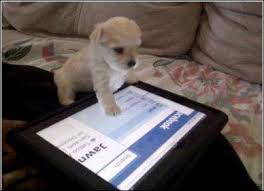 "Where's the iPad Honey?"
"Where's the iPad Honey?"
Anna Jane Grossman, who runs School for the Dogs with dog training partner Kate Senisi, trained her own dog, Amos, on her iPad, and has since segued into teaching budding canine techies how to use the popular Apple device.
Smelly Dog Ears
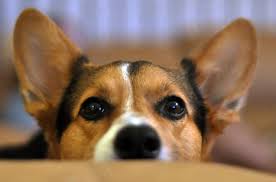 One of the first signs of ear problems is that disgusting yeasty smell. Dogfather Joey Villani knows this is common among certain breeds and he has the solution using products you probably have in the kitchen.
One of the first signs of ear problems is that disgusting yeasty smell. Dogfather Joey Villani knows this is common among certain breeds and he has the solution using products you probably have in the kitchen.
Heartworm Medication Recall
There have been plenty of recalls related to pets in recent months, and as always, we keep you informed about each one. There is one new recall to report; however, this one is not related to pet food or treats. Virbac Animal Health has expanded a voluntary recall on one of their products, a Heartworm preventative, and it might affect your dog.
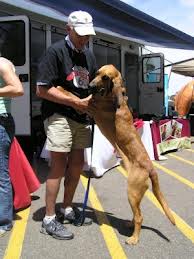
Get Your Licks on Route 66
The annual adoption tour is underway in Los Angeles. Susan Sims will check in from the first stop in Los Angeles. Be sure to join us and find your forever friend along America's favorite highway.
...and of course, the Animal Radio® Dream Team is answering your pet questions.
Listen to this Animal Radio® episode
The Animal Radio® APP is available for Android and iPhone.
Listen on your schedule. Ask our Dream Team questions directly from the App. It's a FREE Download!
Animal Radio® Highlights
![]() Animal Radio® is now on iHeart Radio!! Listen to full shows or Listen to highlights
Animal Radio® is now on iHeart Radio!! Listen to full shows or Listen to highlights
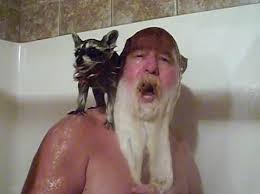 Dancing with Raccoons
Dancing with Raccoons
Mark "Coonrippy" Brown's YouTube videos have gone viral. He got famous for a video that showed him and his pet raccoon Gunshow dancing to Aretha Franklin. But the increased scrutiny on his lifestyle caused the Tennessee Wildlife Resources Agency to step in and confiscate his newest pet 'coon, Rebekah.
Hear this interview on iHeart Radio
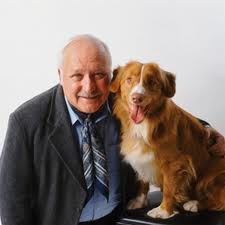 Do Dogs Dream?
Do Dogs Dream?
Stanley Coren is answering all the questions we pondered about our dog. Do they dream? If so, what about? Do they know who is in the mirror? Can they see TV? Can dogs hear better than humans? Is it true that a dogs vision is horrible. What colors can our dogs see? So many questions, plenty of time for answers.
Is My Friend's Dog Gay?
Here at Animal Radio® we hear it all! In this call a listener fears his friends dog is sexually attracted to him. Alan Kabel and Dr. Debbie set him straight. Cause, it's okay if your dog is gay.
Hear this Call Now
 Ask the Animal Radio® Dream Team
Ask the Animal Radio® Dream Team
Listen to Animal Radio® LIVE every Saturday at noon eastern and Sundays at 5pm eastern on XM ch. 244 (America's Talk) or on any of the 108 AM-FM radio stations. Call with your questions toll-free 1-866-405-8405, email yourvoice@AnimalRadio.com or ask directly from the free Animal Radio® App for iPhone/Android.
Inappropriate Urination
Jim: I inherited two dogs a year ago from my aging parents: a 10 yr. old Lhasa and a 9 yr. old Shitzu. Both are males and are adorable pets. However, we have noticed "pee" odor indoors for a long time and even caught the Lhasa marking in a couple of areas where my mother-in-law's male Poodle was caught marking before. The Lhasa urinates outside but continues to mark (a few drops) when he thinks we're not looking. Of course, when we've caught him we immediately say "no" and have placed him outside for a while. We've steam-cleaned the areas numerous times, and even sprayed "anti-peeing" products on the area; however, we still note the odor and even some urine residue on the areas periodically. What to do? Any suggestions? We have no reason to believe the Shitzu is doing this. We've never seen him do any suspicious behavior.
Doctor Debbie: There are a couple of missing pieces of information for answering your pee problem, but I'll mention several points that might be helpful.
You mentioned that your Mother-in-law's poodle has urinated in your home before...is that dog in the home now? How long was he in the home and urinating there?
The scent of other dogs urine in the home can draw other dogs to mark that same area and will make your efforts to stop even more difficult.
Are the urine spots mostly on carpet area?
If you haven't yet used an enzymatic based cleaner- then pick one up. These products (ie Natures Miracle) actually break down the odor molecules and do more than steam cleaning in removing the odor Also, repeated urine soaking of a carpeted area may seep below not only into the carpet but also the underlying carpet pad . If so, even with faithful cleanings, you won't be able to remove the scent. In these situations it is best to tear up the carpet and pad, deep clean the underlying cement and then have new carpet installed.
Are all the dogs neutered?
If your male dogs aren't neutered then those fabulous male hormones could be playing a role. Intact male dogs are driven to mark their territory and will especially do so if they detect another dogs urine in the area.
Have you had your Lhasa examined by a veterinarian?
If not- don't delay on seeing the doc. A thorough physical and urinalysis are in order for any dog urinating inappropriately in the home. I've seen households that try for months or years through behavioral efforts...only to discover later through tests that the dog had a bladder stone causing discomfort and urine accidents!
Do your dogs have free roam of house?
You must monitor the dogs constantly to ensure no accidents occur. Think of it as starting puppy housetraining all over again- complete with monitored potty trips outside and positive rewards when the duty is done in the right area. Use a crate or doggie gates to control access to the home. Allowing the Lhasa free range of the home and opportunities to urinate- only set him and you up for failure.
Let me know if you have any follow up questions or info!
Housetraining and the Crate
Ron: I rescued Toby (a now 13 year old English Cocker Spaniel) from the SPCA 4 years ago. He was previously owned by a woman who had another dog (who I understand he was close to); but, she had to give them up when she went into a nursing home. I brought him home to our other cocker spaniel, Romeo, who was 2 years older than him. They forged a beautiful bond together. Romeo passed away in May. Since then Toby has been distraught when left alone. I used to crate the dogs when we were out and at night. I also gated them in the kitchen area at all times. Since May, Toby wants to constantly be with one of us, especially me. He will follow me around the house wherever I go, always at my feet. Because of his insistence in this, I have allowed him more freedom and have trusted in him to not create a mess in the house. I have taken the gates down and allowed him to roam through the house when we are home, even at night. The only time he is contained anymore is when no one is at home; I then crate him.
No matter how much I get him to relieve himself before crating him, if we are away for any length of time he will soil the cage and then run around in the cage, which creates tiny little pieces of bowel movement inside and outside the cage, as well as on the bars of the cage on all sides. I believe he is so upset by being left alone in there that he barks constantly and gets himself worked up trying to get out. Yesterday he actually managed to do this twice, once overnight while I was away and then once while I was at work in the afternoon (even though I was home for lunch). He is generally the most very sweet, affectionate, loving dog and is a wonderful companion. He does get very nervous with men or loud noises, especially thunder/lightning. You would not believe how bad these messes are that he creates in the cage. I have to wash all the bedding and his paws, clean up the tiny pieces of dried poo from the floor, walls and bars of the cage, and clean
and disinfect the inside of the cage every time. I try to be with him and give him lots of attention when home and am very loving to him. I feed him twice a day on a regular schedule, give him treats and make sure he gets to go for walks. I pay lots of attention to him at all times. I don't feel I can trust him out of the cage when we are not home. I know that is what he would like; but, then, what would he do in the house when he misses us when we aren't home? I want him to be happy; but, I would like to be happy too. I am stumped. Thank you.
Alan Kabel: It's interesting that you used to give the dog good structure and when the one dog passed you removed part of the structure thinking that you were being nice. In reality you removed structure at a time where the dog needed it most. Structure, rules, strong leadership is what it takes to help a dog with anxiety, fear, excitement. Of course, making sure there is nothing physically wrong with a vet visit is where you begin. Then once you've eliminated that you are ready to move on to solutions.
Your dog is very anxious. Change is difficult for dogs. Moving, bringing a baby home, even getting new furniture can really send an insecure dog into hysterics. The problem gets exacerbated when people attempt to apply human emotions and needs to the solution. What a person wants to do is usually the exact opposite of what is needed. Emotions cloud the mind.
You feel bad, guilty because you know how you would feel if you suffered a loss but the truth is your dog doesn't know why you let him wander the house. Your dog doesn't know why you feel bad for him or guilty. He only sees weakness coming from you, not strong consistent leadership. Dogs feel loss but they move on quickly because the wonder of dog is that he lives in the moment. People do not. They agonize and their emotions get in the way of being great dog leaders. Dogs need leadership from people but they need you to lead them like a dog would lead them not the way a human would lead them.
First things first. You've got to check yourself before you wreck yourself. Evaluate your state of mind every time you deal with your dog. Are you calm, mellow, confident or are you worried, feeling bad for your dog, anticipating the worst will happen because if you think the worst will happen it usually will. All of these thoughts make you weak and weakness makes anxious dogs a lot worse. He needs you to be a strong, confident, consistent, fair leader. Stop talking to him, start acting with him. He doesn't talk. He doesn't understand what you are saying besides, good dog or sit. Your sentences mean nothing to him, baby talk, all of it.
It is just a reaction he has learned to get. I'm sure it's a big whoop Dee do when he goes in the crate. That along with anxiety is probably why he does it. He gets a reaction from you, he gets attention. When you give a dog attention even negative attention when they do the wrong thing they continue doing the wrong thing. You only give dogs attention when they are doing the right thing. What is the right thing? They are laying calm in their spot or in their crate.
So make sure you play with the dog 30 minutes each day to really tire him out good.
Then, Immediately start feeding him in his crate with the door open. Put treats in there throughout the day, toys he likes. Say good dog when he goes in. Nonchalant, NO TALKING. Just calmly like it is no big deal feed him in there and place treats in their throughout the day. (Put the gate back where it was and stop giving him run of the house too). Stay in his sight for a while (More below)
Then the next day or over time when he goes in there, close the crate gate and leave him in there for about 10-15 minutes. Open the gate say good boy and give him a treat (if he was quite in there) Do not let him out if he is making noise, only when he is quite. Don't leave the room for a while (maybe a week if you can do this. If all you have is the weekend Make sure he sees you until the end of Saturday)
Then over time, lengthen the amount of time you leave him in there while you are home but begin leaving the room for 5 minutes. Slowly over time lengthen the time you leave the room.
Then begin going outside for a few minutes. Lengthening the time over time (On Sunday). Praise him for being calm and quite, never for being excited. Do not pay attention to him or talk to him, pet him when he is excited. ONLY when calm and quite.
Make sure he is on a regular schedule for going out to the bathroom. Praise him for going, Good dog, No parade.
Bring him in and place a treat in the crate.
What you are doing, over time is changing the association he has with the kennel from bad place to good place and teaching him that he is OK without you around and that you are coming back. You are leading when you do these things. Giving affection and attention at the right time in the right way is critical. If a dog is afraid of thunder you take him for a fun, quiet calm, walk during the storm to lead, show him you are not afraid so he doesn't need to be and change the association form bad to good. It may take several times but it works.
If he makes a mess in the crate again, say nothing. Do not clean it in front of him and do not clean him right away. Put him outside where he can't see you and clean the crate. Then clean him but no talking, no big event. If he is excited do not touch him, do not talk to him until he gets calm. Turn your back on him. When you make a move to touch him if he starts to get excited withdraw quickly. Just stand up.
You are teaching him over time that he will not get attention of any kind unless he is calm. Then you pet him slowly calmly and say good dog. If you are excited when you pet him he will be excited. Do not let other people get him excited or pet him like nuts with baby talk.
When you leave the house remember the crate is a trigger. He knows you are leaving when you crate him so that is why it is important to begin crating him while at home. You eliminate the trigger but look for other triggers like putting on a coat or picking up your purse. To eliminate those put on your coat every now and again and go no where. In general you must begin looking at your dog not with human eyes, but with dog eyes.
Look for any trigger you may be pulling that makes him anxious and eliminate them like I described above.
Make coming and going a NON event. When you place the dog in the crate (and do it at various times before you leave not right before you leave. Maybe 30 minutes before one time, 15 minutes another, 60 minutes another) do not talk to him or say goodbye when you leave. Do not talk to him or let him out for at least 15 minutes when you come home. Then immediately take him out to go. Take him out to go before you place him in the crate to leave but not immediately before every time or you create another trigger. You can take him out and place him in the crate with a treat when you are not leaving so he doesn't associate going out and the crate with you leaving. You prevent the trigger.
Make sure you leave the house first, you enter the house first. Lead him
In general you are satisfying your dogs needs by doing these things. Most people think that by doing these things they are being cold, unfeeling. They are thinking and seeing human, not dog.
Dogs need. Socialization, Structure and exercise, then affection given at the right time in the right way last. This is how you give a dog the gift of a calm, happy well balanced life. You lead, you set the dog up for success and you reward. When you scold it only teaches the dog how to get attention by doing what you don't want. Give attention only when the dog does what you do want. Remember. Do not feel guilty because your dog doesn't understand it, doesn't know what you know. Dogs, even the smartest ones, think like 2 year olds. Remember this.
Complex human thoughts and feelings mean nothing to them. They live in the moment and they need leadership just like if they were living in the wild. They are born with the pack mentality, protecting the pack, survival. If the pack has no clear leader it makes them nuts because they feel they need to lead and they are not prepared to do it, they are not strong enough. This creates lots of anxiety. You leaving creates lots of anxiety because in the dog world the leader very rarely gives pack members permission to leave the pack. Only to hunt. When you leave you are doing it without his permission. When you give him run of the house, your space, he sees weakness. In the pack the members do not enter the leaders space.
He sees himself as your leader because you are weak. In the wild he would never be the pack leader. There can be only one. Very few dogs are equipped to lead so when humans inadvertently force them too you get anxious, fearful, excited dogs.
When you begin to give your dog what he needs, leadership, you will see his anxiety melt away, maybe not totally, but much of it will disappear.
The Animal Radio® APP is available for Android and iPhone.
Listen on your schedule. Ask our Dream Team questions directly from the App. It's a FREE Download!
_____________________________________________________________________________________________________
![]()
![]() Copyright 2003-13 Animal Radio®, its logo and Animal Radio Network(TM) are registered trademarks of Animal Radio Network LLC. All rights reserved. Submissions for newsletter, programming, editorial comments and opinions may be sent to: YourVoice@AnimalRadio.com. See our website for additional information.
Copyright 2003-13 Animal Radio®, its logo and Animal Radio Network(TM) are registered trademarks of Animal Radio Network LLC. All rights reserved. Submissions for newsletter, programming, editorial comments and opinions may be sent to: YourVoice@AnimalRadio.com. See our website for additional information.




